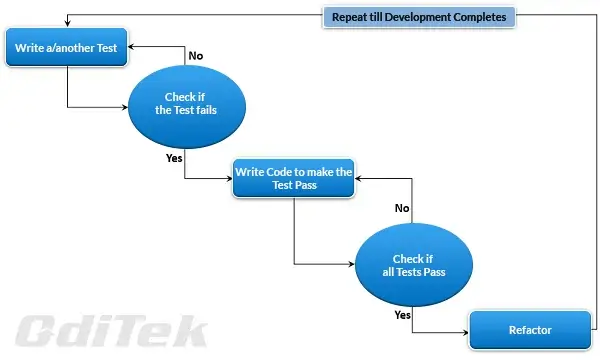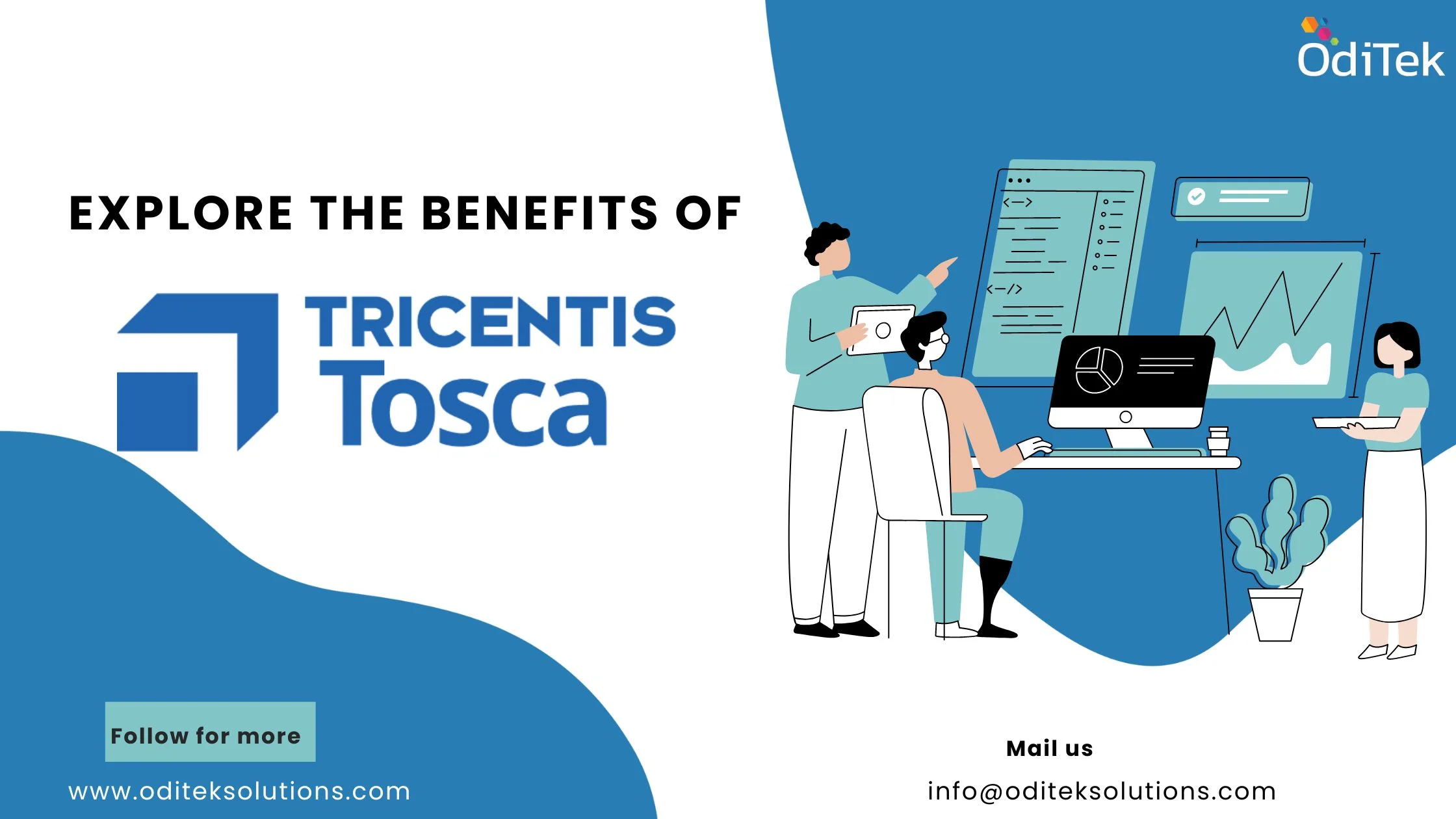Test Driven Development (TDD) is a paradigm for writing minimal code to pass a pre-defined test or tests. Test-driven development starts with developing a test for each one of the features. The test might fail as the tests are developed even before the development and the development team then develops and refactors the code to pass the test. Test-driven development is related to the test-first approach theory evolved as part of extreme programming concepts.
TestNG
TestNG is a testing framework that is inspired by JUnit and NUnit but introducing some new functionalities that make it more powerful and easy to use. TestNG is an open-source advanced automated testing framework designed in a way to leverage the benefits by both the developers and testers. This eliminates most of the limitations of the older framework. It provides the developer the ability to write more flexible and powerful tests with help of easy annotations, grouping, sequencing & parametrizing.
TDD Process Steps
A successful testing strategy needs to look at the whole cycle of what you are creating and releasing. Following a test-driven approach to make sure developers are checking in high-quality code is a good place to start and will ensure better results down the road.
TDD process flow chart
Test Driven Development Key features
- It promotes confirmatory testing of the application code and is briefly specified.
- Both acceptance test (detailed requirements) and developer tests (unit test) are inputs for TDD.
- TDD makes the code clear & simple which allows the developer to maintain less documentation.
- TDD shortens the programming feedback loop.
- TDD promotes the development of high-quality code
Benefits of using Test Driven Development
- The developer must understand first, what the desired result should be and how to test it before creating the code.
- The code for a component is completed only when the test passes and the code is refactored. This ensures testing and refactoring before the developer moves on to the next test.
As a set of Unit tests is run after each refactoring, feedback that each of the components is still working in constant. - The Unit tests act as living documentation that is always up to the data.
If a defect is found, the developer creates a test to reveal that defect and then modify the code so that the test passes and the defect is fixed. This reduces debugging time. All the other tests are also run and when they pass, it ensures that the existing functionality is not broken. - The developer can make design decisions and refactor at any time and the running of the tests ensures that the system is still working. This makes the software maintainable.
- On each successive test run, all the previous defect fixes are also verified and the repetition of the same defect is reduced.
- As most of the testing is done during the development itself, the testing before delivery is shortened.
OdiTek’s Service Offerings
OdiTek’s direction is to build a customer-centri, agency anchored business model by modifying the process for agencies and customers to conduct business with us.
- At OdiTek, our highly experienced & skilled professionals create and review technical designs based on business requirements
- We are proficient with Agile software development lifecycle methodologies including a brief understanding of test driven development (TDD) and/or behavior driven development (BDD) and experience in using testing frameworks (JUnit, Cucumber, TestNG, etc.).
- Our expert team design, analyze, develop, unit testing (TDD) and regression automation (BDD) to deliver product backlog for large and complex projects.
- Maintain and optimally utilize all QA environments. Ensure necessary and sufficient environments are in place for QA delivery.
- Manage code inspections and test plan reviews
- Provide technical input and support architectural assessments
- Review code for internet facing line of business web applications
- Troubleshoot and debug technical issues in a variety of application environment
- Assist program test manager in strategic test planning, scheduling, testing effort identification, continuous improvement processes, and reporting activities.
- We will be the gatekeeper for your product. It is our responsibility to ensure no issue big or small, make it to the production environment.
Skills Matrix
- Understanding of agile development practices such as TDD / ATDD, code reviews, continuous integration, automated deployments, etc.
- Solid experience working with Selenium.
- Our developers are capable to understand what the desired result should be and how to test it before creating the code.
- Experience in incorporating and utilizing TDD and JavaScript unit testing frameworks such as Mocha, Chai or Jest, etc.
- In-depth experience in Java TDD tools such as mocking libraries, matching libraries and the TestNG framework itself.
- Experience working in an Agile/DevOps technology environment-techniques such as User Stories, Continuous Integration, Continuous Deployment, Automated Testing, etc.
- In-depth experience of DevOps tools like Azure DevOps, Jenkins, etc.
- Development of enterprise services using SOAP, REST-based APIs
- Extensive experience working with XPath, XSLT and other XML APIs.
- We are experienced in writing and running JUnit and TestNG tests, TDD, continuous integration (Maven and Jenkins).
- Experience working with, or an interest in Agile Methodologies, such as Extreme Programming (XP) and Scrum.
- Excellent Test Planning, Scripting, Execution and Defect Management skills.
- We have experience in selenium web driver automation, test estimation,
automation framework design & automation script preparation (Java/Python/Ruby/Groovy/Oops Concept). - Hands-on experience in Selenium Cucumber or Jbehave.







